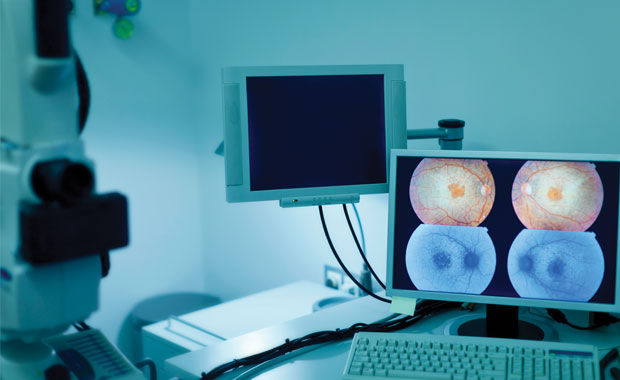Individualized Therapy Research At SickKids Hospital Offers New Hope To Cystic Fibrosis Patients
Lung Health Revolutionary CF research aims to drastically improve efficacy of treatment.

Each week in Canada, two children are diagnosed with CF. It is the most common fatal genetic disease affecting Canadian children and young adults. There is no cure.
CF can cause many symptoms, including difficulty breathing, severe lung infections, and difficulty absorbing vital nutrients. The treatment protocols for CF are time-consuming, with many patients spending upwards of three hours a day on respiratory and digestive health care.
While improvements in treatments aimed at treating these symptoms have meant that many people with CF now live longer and healthier lives, the predicted median age of survival still comes in at just over 50 years of age, and half of all CF-related deaths in 2013 were of people under 35 years of age. Too many young people are still losing their lives to this disease.
Individualized therapies for CF patients
CF is caused by a defect in the cystic fibrosis transmembrane conductance regulator (CFTR) gene. There are more than 2,000 different mutations in the CFTR gene that can lead to the disease. Recently, there has been exciting progress in developing therapies that target the defects caused by specific mutations, with the goal of correcting the root cause of the disease. This progress has occurred through basic scientific discovery by academic scientists and collaboration with pharmaceutical companies to enable new treatments. One drug has already been approved that targets a specific CF-causing mutation, but there remains much work to do to ensure that every mutation can be treated, and further, that every patient responds well to these emerging drugs.
“No two CF patients are alike and two individuals who share the same mutant protein may not respond to treatment in the same way.”
The new program for Individualized Therapy for Cystic Fibrosis at SickKids Hospital has merged mutation-targeted and patient-targeted approaches. This approach is important because no two CF patients are alike, and two individuals who share the same mutant protein may not respond to treatment in the same way. At SickKids, the program will work to develop personalized drug testing platforms, allowing doctors to test how patients will respond to a specific drug before it is actually administered to them. Working with stem cell biologists, the program will provide individualized drug profiling platforms, so that emerging drugs can be tested on each patient’s lung, bile duct, or intestinal cells.
Innovative research into drug testing
“We’re developing a way that we can test drugs on people’s own cells before they’re given the drug in a clinical scenario,” says Dr. Christine Bear, Senior Scientist, Molecular Structure & Function Research Program, SickKids. “With this research, we can rank the effectiveness of a particular drug on an individual’s cell. That’s important, because there are so many compounds coming out, and we want to make sure that we put somebody on the drug that is going to be most effective for them.”
Through a collaboration between scientists, clinicians, and, most importantly, participants and their families — the team will create a resource that will be accessible internationally, promoting this revolutionary type of research.
“The ultimate goal is to find the best medication for all CF patients, from those with the most common mutation to those with very rare mutations,” says Dr. Bear. “We’re all really excited about this opportunity and have a huge amount of optimism.”















.jpg)
























.jpg)























.jpg)


.png)











